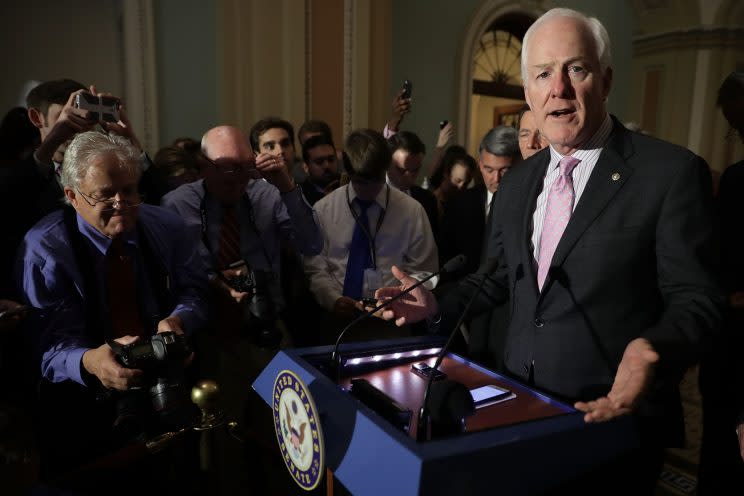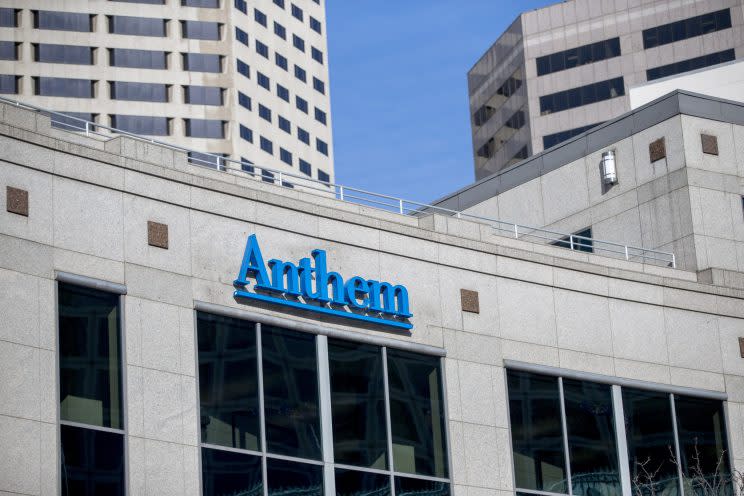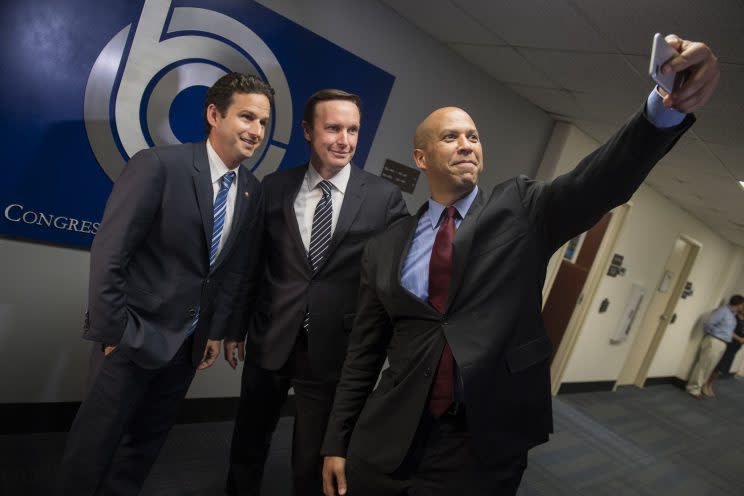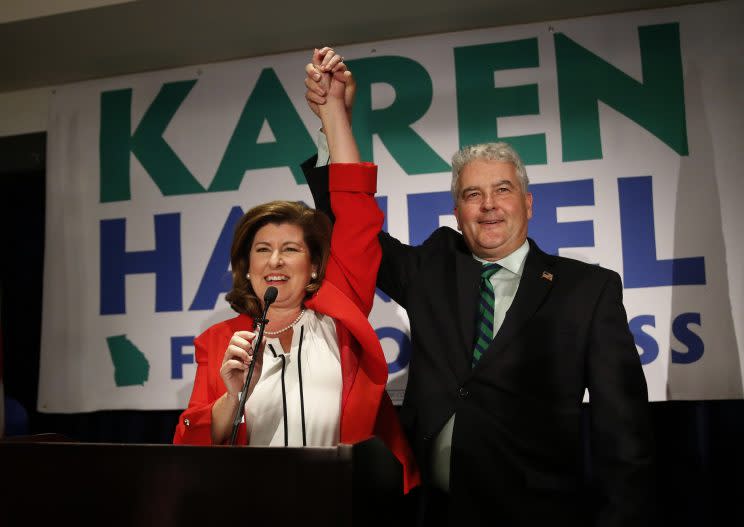Health Care Declassified No. 3: Senate bill still under construction, a day before scheduled rollout

Yahoo News peeks behind the curtain of secrecy surrounding the Republican health care bill to learn what we can about what it may contain. We’ll combine our own reporting with the best insights from around the Internet to give you the latest on the future of health care in America.
~
The wait is almost over: Senate Republicans will unveil their version of an Obamacare repeal bill Thursday, although concerns remain about how Senate Majority Leader Mitch McConnell will bridge divisions within his own party to get the measure passed.
Sen. John Cornyn, R-Texas, told reporters that the bill will be made public as a “discussion draft” on Thursday.
“The world will receive it [tomorrow],” Cornyn said, adding that he hoped his GOP colleagues would get a chance to see the bill before it’s made public.
But according to Sen. Susan Collins, R-Maine, key details in the bill are still “up in the air,” including whether to scale back Obamacare’s Medicaid expansion. More moderate members, such as Collins and Sen. Rob Portman, R-Ohio, want to preserve pieces of the Medicaid program going forward, whereas other senators favor more significant cuts to the program.
One open question is what measure of inflation to use in calculating changes to Medicaid reimbursements to the states. The version of the American Health Care Act passed by the House pegged future reimbursements to the rate of inflation in medical costs. But there is a move among some senators to use the (generally lower) change in Consumer Price Index instead — making the bill even less generous than the version that President Trump reportedly considered too “mean.”
But Collins said there were other ways in which the the Senate bill might be more generous, including larger tax credits for consumers to buy health insurance, on a sliding scale that would give more help to lower-income taxpayers.

“There have been a lot of discussions that lead me to believe that, for example, the tax credits in the Senate bill will be adjusted for income, whereas in the House bill they were not,” Collins said. “That is a major and a positive step.”
But frustration continues to mount among Republican senators not in the 13-member group working directly on the bill.
“I don’t know the specifics … that’s the problem,” Collins said, adding she has seen “not a thing” in the bill.
Members say it is impossible to know whether or not they support the bill until it is officially unveiled and they have a chance to review it.
“I won’t vote yes until I’ve satisfied myself that it’s a continuous improvement over what we currently have, and I’ll need information to make that determination,” Sen. Ron Johnson, R-Wis., told Politico Tuesday. “I’ll have to see what the final bill is. And by the way, I think the American people ought to have enough time with the final bill as well.”
While it is unclear that McConnell has the 50 votes needed to approve the legislation, he has indicated that a vote will be held next Thursday after the Congressional Budget Office reviews the proposal.
Cornyn said a CBO score, which assesses the bill’s impact on premium prices and coverage, could be announced as early as Friday.
And while moderates like Collins have expressed concern about the proposal, some of the most conservative members in the Senate criticized the bill for not going far enough. Sen. Rand Paul, R-Ky., and Mike Lee, R-Utah, argue that the bill would preserve some of Obamacare’s key mechanisms and that it does not fulfill their pledge to repeal it.
“I think they’ve forgotten all the rallies where they said they were going to repeal it,” Paul told Bloomberg. “I mean, we had thousands of people standing up and cheering us on, saying they were going to repeal it. And now they’ve gotten kind of weak-kneed and I think they want to keep it.”
Paul added that he thought the Senate proposal would eventually mirror the poor approval rating of the House’s version, which 21 percent of Americans support, according to a Quinnipiac poll last month.
But party leaders say they expect to get to 50 votes.
“It’s my job to find 50 votes,” Cornyn, the majority whip, said Tuesday. “We’re going to have 50 votes.”
_____
As lawmakers battle in D.C., insurers must make big decisions about Obamacare’s future

Wednesday is a key day for health care in another regard as well: It is the last day for insurers to file their health insurance rate in Obamacare marketplaces for 2018.
With details still unclear about what changes will come to the current system, many observers are looking to the deadline as a sign of the health of the exchanges. Citing uncertainty about the future of the marketplace, some insurers have announced they will not re-up for 2018.
Anthem, a key player in the health care exchanges in many states, announced earlier this month they will pull out of Ohio in 2018. This decision would leave roughly 10,500 people without any insurance options, a fact Republicans have seized upon in an effort to show Obamacare’s shortcomings.
Others argue that Anthem’s decision, as well as that of other insurers who are opting to leave the marketplaces, was an effect of Republican efforts to repeal Obamacare and overhaul the exchanges.
“They own this health care system now,” said Sen. Sherrod Brown, D-Ohio, said after the Anthem decision. “Because they fiddled for the last five months and injected more uncertainty into the insurance market, premiums have gone up and insurance companies have pulled out.”
Anthem also announced Wednesday that they would largely leave markets in Wisconsin and Indiana.
But even as some insurers say they are uncertain as to their 2018 plans, others are entering or expanding their presence in the marketplace. Oscar Health said Wednesday they would offer policies in Ohio, New Jersey and Tennessee, while expanding their current offerings in California and Texas.
Anthem announced Monday that they would remain in Colorado’s marketplace, helping mitigate concern that they would leave residents of a handful of counties without an insurance option. Medica, a smaller provider, said they would start up in Iowa to fill the gap left after Aetna and Blue Cross announced they were exiting the state.
Oscar Health CEO Mario Schlosser said that he believed that the political turmoil would calm down before 2018.
“Why seek to expand in a time of uncertainty? We’re confident that when the dust settles, the market for health insurance will stabilize in time for 2018,” Schlosser wrote in a blog post. “For all of the political noise, there are simply too many lives at stake for representatives in Washington, D.C., not to do what’s right for the people.” — Andrew Bahl
_____
Democratic senators trek across Washington in search of health care bill

Democratic lawmakers are pulling out all the stops in their attempts to obtain a copy of the Republicans’ carefully guarded health care bill.
Those efforts now include a stunt by a trio of Democratic senators to highlight the “absurdity” of the Republicans’ secrecy. Senators Cory Booker of New Jersey, Brian Schatz of Hawaii and Chris Murphy of Connecticut hailed a cab from the Capitol to the CBO to hunt for a copy of the bill, which has not yet been released to the public or to all senators.
The health care bill has been cloaked in secrecy by a 13-member working group, frustrating Democratic senators and even some GOP lawmakers not on the inside. So far, no version of the legislation has been released to the public, but Senate Majority Leader Mitch McConnell promised that a “discussion draft” of the bill will be available on Thursday.
The trio of senators said they heard that the CBO had a copy of the bill, so they drove over to the office and tried to obtain a copy while they broadcast their trip on Facebook Live.
According to reports, Republicans submitted at least portions of the bill to the CBO to obtain preliminary scores from the nonpartisan body. The CBO is not required to release the bill, and the office rejected the Democrats’ request, and declined even to confirm that they were working on it.
“It’s a bill that was negotiated in secret with 13 men, no women, no Democrats, no experts,” Schatz said in the video. “This is the most foul legislative process I’ve ever seen in my 20 years of being a legislator and being in politics.”
Murphy said on MSNBC’s “Morning Joe” Wednesday that the idea originated with Schatz.
“We wanted to expose the absurdity of the situation that we’re in,” Murphy said. “It is a challenge right now to get everyone’s attention off of Russia and onto health care.”
Democrats have employed maneuvers, including Monday night’s talkathon, in their attempts to slow the passage of the bill. But the Republicans only need 50 votes to pass their health care bill — and thus could secure a passage without any Democratic votes. They hold a 52-48 advantage in the Senate, and in case of a tie, the deciding vote would be cast by Vice President Pence.
Activists and constituents have also turned up the heat on GOP senators to protest the secretive health care bill and grill them over the upcoming legislation.
Grassroots organization Mountaineers for Progress delivered 185 waffles to the office of Sen. Shelley Moore Capito, R-W.Va., last Wednesday in protest of the GOP’s health care bill.
West Virginia is a heavily Medicaid-dependent state, with about 185,000 West Virginians at risk of losing their health care if Obamacare is repealed and replaced, according to Shane Assadzandi, at-large director of Mountaineers for Progress. Each waffle represented the 1,000 beneficiaries who would lose their health care if Medicaid isn’t protected.
“Sen. Capito has previously spoke very strongly about protecting Medicaid expansion,” Assadzandi said to Yahoo News. “Then she more recently sort of spoke in favor of a seven-year plan to phase [Medicaid] out. We interpreted it as her ‘waffling’ on what she did before.”
#SaveMeCapito #ProtectOurCare @SenCapito Watch live at https://t.co/5bT4UEd8pz pic.twitter.com/CnlMrlPdm5
— Mountaineer4Progress (@Mtners4Progress) June 14, 2017
Another group of activists drove from Ohio to Washington, D.C., to attend a coffee hour with Sen. Rob Portman. An Ohio chapter of Indivisible, a grassroots network that opposes Trump’s agenda, brought dozens of people to Portman’s office to confront the senator in person about health care.
Several other groups chose more confrontational methods, like sit-ins at various senators’ offices. — Julia Munslow
_____
GOP special-election wins shed light on attitudes toward health care

With his appointment of Tom Price as secretary of the Department of Health and Human Services, President Trump sparked a highly contentious special election for the seat in Price’s Sixth Congressional District of Georgia. Republican Karen Handel narrowly defeated Democrat Jon Ossoff Tuesday night.
The race has been widely called a referendum on President Trump, but could also shed light on the popularity of health care reform among Republican voters. Ossoff saw an unprecedented wave of support within the traditionally red district, largely due to increasing frustration with the Trump administration.
Ossoff however, did not support a single-payer health care system, the solution increasingly favored by the progressive wing of the party, and he refrained from attacking the upcoming Republican bill.
Ossoff’s residence outside the district and the shooting at GOP baseball practice last week are also believed to have played a role in the election results. — Taylor Rogers
_____
Members of GOP working group also frustrated with the drafting process
Despite the strict secrecy around their upcoming health care legislation, several members of the GOP working group tasked with drafting the bill have begun to publicly criticize the process.
Sen. Mike Lee, R-Utah, hosted a Facebook Live Tuesday explaining that he had not yet seen a draft of the bill despite being one of 13 senators responsible for it. According to Lee, aides to members of the Republican leadership are writing the bill.
“It has become increasingly apparent in the last few days that even though we thought that we were going to be in charge of writing a bill within this working group, it’s not being written by us,” Lee said.
Lee is not the only member of the working group to publicly question the manner in which Majority Leader Mitch McConnell has chosen to draft the bill. Sen. Ron Johnson, R-Wis., questioned the speed with which the bill is being brought to the floor.
“What I’ve told leadership is that I’m going to need time [with] my constituents,” Johnson said during an appearance on CNN’s “New Day” Wednesday. “I’m going to need time to evaluate exactly how this is going to affect them, so I personally think holding a vote on this next week would definitely be rushed.”
“I can’t imagine quite honestly that I’d have the information to justify a yes vote in just a week,” Johnson said.
According to McConnell, all Republican senators will see a “discussion draft” of the bill on Thursday and it will be brought to the Senate floor for a vote early next week.
“If you’re frustrated by the lack of transparency in this process, I share your frustration, I share it wholeheartedly,” Lee said. — Taylor Rogers
_____
Read more from Yahoo News:


